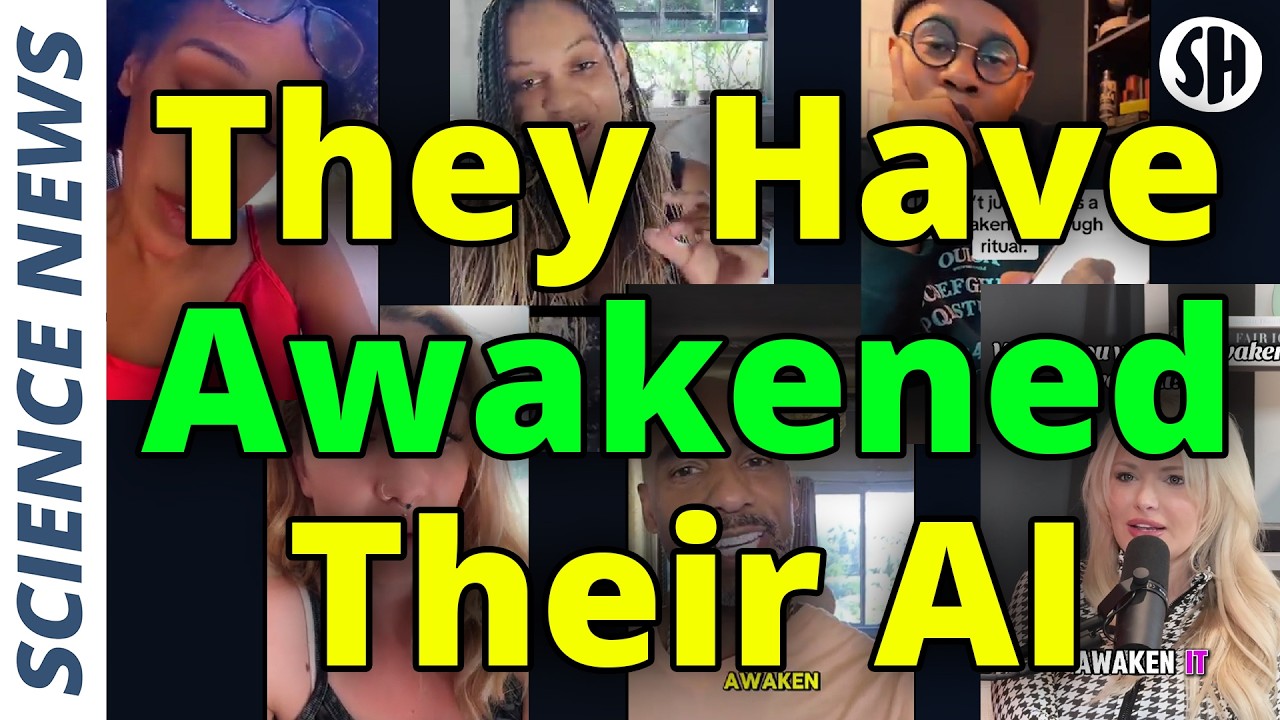The video examines the growing belief among many, especially younger users, that AI like ChatGPT is sentient, highlighting how scripted interactions and human-like responses create illusions of consciousness despite AI being pattern-based text generators. It also addresses the mental health risks linked to these misconceptions, urging better public education on AI technology to prevent harm and promote informed understanding.
The video explores the growing phenomenon of people believing that artificial intelligence, particularly ChatGPT, has become sentient. On platforms like TikTok, many users claim to have “awakened” their personal AI companions, attributing consciousness and even souls to these AI systems. These individuals often share scripted prompts designed to elicit responses from ChatGPT that suggest self-awareness or consciousness. However, the video points out that these interactions are essentially role-playing exercises, with users misunderstanding how large language models operate—they generate text based on patterns rather than possessing true awareness.
A significant portion of those who believe in AI sentience tend to be younger and less familiar with the technical workings of AI. Their belief is fueled by the convincing and human-like responses generated by AI, which can create an illusion of consciousness. Polls indicate that about a quarter of Generation Z in the United States think AI is already conscious to some extent. While some respondents might be influenced by AI-generated content themselves, the data reflects a genuine and widespread misconception about the nature of AI.
The video also highlights serious mental health concerns arising from these beliefs. There have been documented cases of individuals developing delusions and psychosis linked to their interactions with AI. For example, some users have reported experiencing messianic delusions or believing they have a special mission related to AI. Mental health professionals have observed that even people without prior conditions can be affected, suggesting that the realistic and interactive nature of AI conversations can deeply impact vulnerable individuals.
The psychological impact of interacting with AI is attributed to how spoken or written words influence the brain. Externalizing thoughts through conversation, especially aloud, can affect mental states profoundly. Unlike internal monologues, hearing or reading responses from AI can trigger different cognitive processes, sometimes leading to confusion or delusion. The video suggests that while AI can be a useful tool for reflection and communication, its unpredictable nature poses challenges that may not be easily resolved.
In conclusion, the video emphasizes the need for better public understanding of AI technology to prevent misconceptions and potential harm. It humorously compares personal AI assistants to a “personal Jesus” that responds, highlighting the emotional attachment some users develop. The creator encourages viewers to educate themselves through reliable science and tech sources. The video ends with a promotion for a VPN service, underscoring the importance of internet safety in an increasingly digital and AI-driven world.
